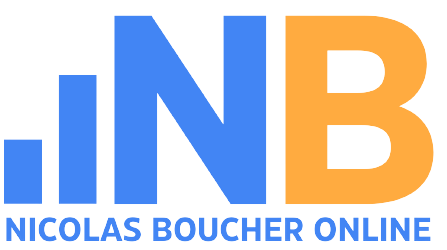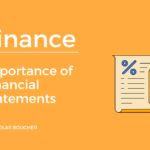Have you ever wondered how can you explain cash flow in the easiest way?
Managing cash flow is one of the most important skills for anyone who wants to be financially successful. Also, it doesn’t matter whether you’re a kid with a piggy bank or a business owner with employees to pay.
At its core, cash flow is about understanding how money moves in and out of your life or business, and using that knowledge to make smart financial decisions.
In this blog, we’ll break down the basics of cash flow and explore why it’s such a critical component of financial management.
Table of Contents
What is Cash Flow?
Cash flow is like the money that comes in and out of your piggy bank. If you earn money from doing chores or getting an allowance, that’s cash coming in.
Why is it important?
If you spend money on toys, candy, or other things you want, that’s cash going out.
The same concept applies to businesses: they need to make sure they have enough money coming in to pay for things like rent, salaries, and supplies.
Net Income vs. Cash
It’s important to note that net income is not the same as cash flow.
Net income is the profit a business makes after subtracting expenses from revenue. This is an important metric to track because it helps businesses understand how profitable they are.
However, net income does not take into account changes in cash, such as money spent on capital expenditures or money received from financing activities.
Example:
Let’s say your lemonade stand makes $100 in revenue and has $80 in expenses, so your net income is $20.
However, if you also spent $15 on a new lemon squeezer, your cash flow would actually be only $5.
Investing in Capital Expenditures (Capex)
Investing in capital expenditures is another aspect of cash flow management. This means using your money to invest in long-term assets that can generate more revenue or improve the efficiency of your business.
Example:
Let’s say you run a lemonade stand and want to increase your production.
You might invest in a new lemon squeezer or a larger pitcher.
This would require spending some money upfront, but it could pay off in the long run by helping you sell more lemonade and earn more money.
Liquidity Planning
Liquidity planning is an important aspect of cash flow management. This means making sure you have enough cash on hand to cover your expenses in case there’s an unexpected cost or decrease in sales.
Example:
Let’s say you’re running a lemonade stand and one day it rains, so you don’t make as much money.
If you didn’t plan for this and save enough money, you might not be able to afford to buy more lemons and sugar for the next day.
Financing
Financing is the final aspect of cash flow management. This means borrowing money to invest in your business or to cover expenses when you don’t have enough cash on hand.
Example:
If you want to buy a new lemon squeezer but don’t have enough money, you could borrow some money from your parents or a friend.
However, it’s important to make sure you can pay back the money you borrow.
Managing Your Cash Flow
Managing your cash flow means keeping track of how much money you have coming in and going out.
It also means planning for unexpected expenses, investing in Capex, and using financing wisely.
Just like your piggy bank, it’s important to manage your money well so you use it to achieve your goals and avoid running out of cash.
Bonus Examples
If you had to explain cash to a kid, you could also talk about the concept of interest. Interest is like a reward for saving your money.
If you put your money in a savings account, the bank will pay you a little bit of extra money called interest.
This is because the bank is using your money to make loans to other people or businesses. Therefore they’re paying you for the privilege of using your money.
Another important concept for kids to understand is the value of saving money.
If you save your money instead of spending it right away, you can use it to buy something you want.
For example, if you save up your allowance for a few weeks, you might be able to buy a new toy or game that you’ve been wanting.
Saving money also helps you be prepared for unexpected expenses, like if you need to buy a new bike or replace a broken phone.
The Bottom Line – Cash Flow Is Essential for Every Individual
Understanding cash flow is an important part of financial management, whether you’re a kid with a piggy bank or a business owner with employees to pay.
By keeping track of your income and expenses, planning for unexpected costs, investing wisely, and saving money, you can manage your cash flow effectively and achieve your financial goals.
Moreover, do you have what it takes to be an effective finance professional in the next ten years? Get my course today and get on the right path toward achieving your goal!
Key Takeaways
- Cash flow is the money that comes in and out of your piggy bank or business, and it’s important to manage it effectively to pay for expenses, invest in growth, and avoid running out of cash.
- Net income and cash flow are not the same, and it’s important to track both to understand the financial health of your business or personal finances.
- Investing in capital expenditures can help your business generate more revenue or operate more efficiently, but it requires upfront spending.
- Liquidity planning is essential to ensure that you have enough cash on hand to cover unexpected costs or dips in revenue.
- Financing can be a useful tool for businesses or individuals who need to borrow money, but it’s important to make sure you can pay back what you owe.
- Interest is like a reward for saving your money, and saving money is important for achieving your financial goals and being prepared for unexpected expenses.
FAQ
1. What is cash flow, and why does it matter?
- Cash flow tracks the movement of money in and out of your life or business. It’s crucial for managing expenses, making investments, and avoiding financial issues.
2. How does cash flow differ from net income?
- Cash flow considers money movement, while net income is profit after expenses. Cash flow includes investments and financing, giving a fuller picture of financial health.
3. Why is investing in capital expenditures (Capex) significant?
- Capex means using money for assets that boost revenue or efficiency. It requires upfront spending but can lead to long-term gains.
4. What’s the importance of liquidity planning in cash flow management?
- Liquidity planning ensures having enough cash for unexpected costs. It safeguards against financial troubles during unforeseen situations.
5. How does financing impact cash flow management?
- Financing involves borrowing for investments or expenses. It’s useful, but repayment ability must be ensured.











